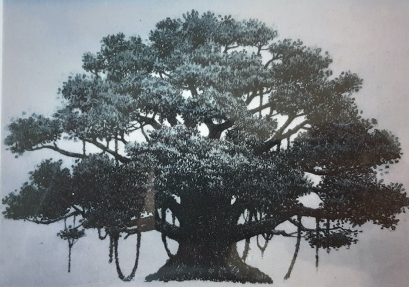Subsidie voor kinderboek over planten
Dr. Casper van der Kooi heeft onlangs een subsidie van het Lira Fonds gekregen voor het schrijven van een populairwetenschappelijk boek over planten. De subsidie bedraagt 37.500 euro. Van der Kooi, onderzoeker bij het Groningen Institute for Evolutionary Life Sciences (GELIFES), zal een geïllustreerd kinderboek schrijven over de evolutionaire oorsprong van planten en het belang van planten in ons dagelijks leven. De broer van Van der Kooi, die kunstenaar is, zorgt voor passende illustraties. De bedoeling is dat het boek eind 2023 of begin 2024 uitkomt.
Nu Van der Kooi zelf vader is, merkte hij op dat veruit de meeste kinderboeken gaan over grote (aaibare) dieren, terwijl er zoveel leuks te vertellen is over planten. Bijvoorbeeld over hun innige en unieke relatie met bestuivende insecten. Onderdelen waar het boek bij stil staat zijn bijvoorbeeld de eerste landplanten en welke planten er waren ten tijde van de dinosauriërs. Ook komen belangrijke ontwikkelingen in de evolutie van planten, zoals het ontstaan van zaden en bloemen, aan bod.
Lira Fonds
Sinds 2021 kent het Lira Fonds de Beurzenregeling Wetenschappelijke Boeken. Het fonds reikt jaarlijks vier beurzen uit aan wetenschappers die een Nederlandstalig non-fictieboek willen schrijven.

Meer nieuws
-
29 januari 2026
Microplasticonderzoek - opgeblazen nieuws of een echt gevaar?
-
27 januari 2026
ERC Proof of Concept grant voor Maria Loi
